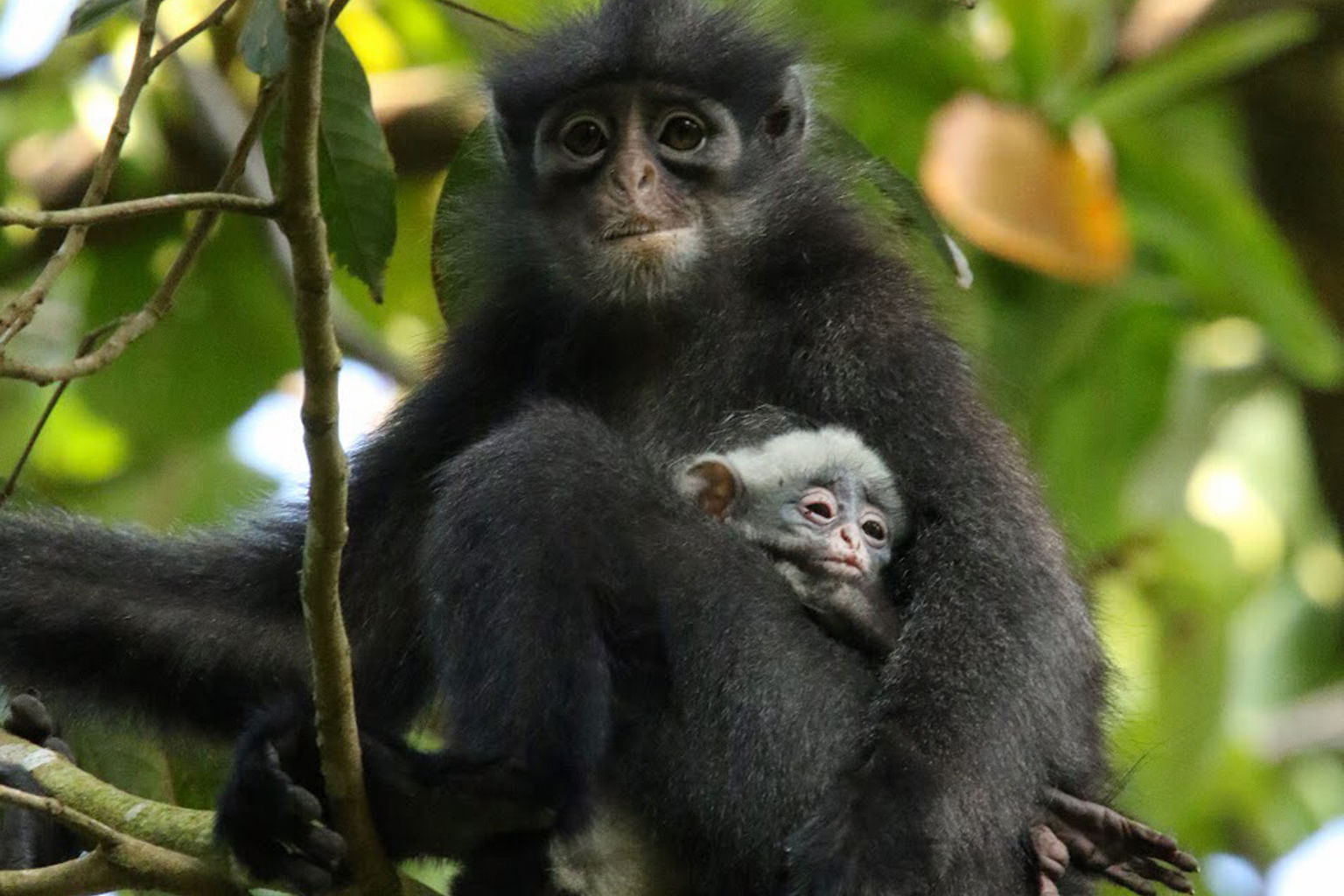Increase in population of critically endangered monkey in S'pore, but more needs to be done
Sign up now: Get ST's newsletters delivered to your inbox

The Raffles' banded langur can be found only in Singapore and the southern parts of Peninsular Malaysia.
PHOTO: ST FILE
SINGAPORE - The Raffles' banded langur - a shy, critically endangered monkey native to Singapore - appears to be faring well in the Republic, with numbers of the black-and-white leaf eater growing from about 40 to 70 over the last 10 years.
But primatologist Andie Ang, who studies these creatures, said not all the monkey babies may survive and grow into adults.
"The concern that we have now is that due to its small population, the genetic pool of the langur is quite poor," said Dr Ang on Tuesday morning (June 21), during a visit to the Thomson Nature Park to promote a new podcast series called Expedition: Earth by National Geographic.
Dr Ang, who is a research scientist at Mandai Nature and a National Geographic Explorer, added: “Similar to humans, the infants born in an inbred population may have physical deformities and some of them might not survive to adulthood.”
Genetic data from the langurs - which scientists like Dr Ang glean by collecting and analysing stool samples left by the creatures - showed that the shy and elusive langurs are highly related to one another, said Dr Ang, who is also the president of conservation group Jane Goodall Institute in Singapore.
The 12-episode podcast series was launched on April 22. Hosted by various National Geographic Explorers from across the world, the series aims to help listeners appreciate and learn ways to protect nature and wildlife.
The Raffles' banded langur can be found only in Singapore and the southern parts of Peninsular Malaysia, such as in Johor and Pahang.
In a bid to improve the gene pool of the local primates, Dr Ang and her team at Mandai Nature are consulting with scientists and naturalists from Malaysia, such as those from the Malaysian Nature Society and the Universiti Sains Malaysia, on the possibility of introducing monkeys from Malaysia to Singapore.
This way, said Dr Ang, langurs from the neighbouring country would be able to mix and breed with the species here, increasing the genetic diversity of the next generation.
But before such translocation programmes can happen, more research is needed, said Dr Ang. Such studies will look into, among other things, whether the habitats in Singapore are able to accommodate the monkeys from across the Causeway.
"We can't just throw them into the nature park and expect them to adapt to this different environment. It is a long-term thing that we need to work on but we have to start now."
Dr Ang also highlighted the importance of outreach and education efforts in Singapore to promote co-existence between humans and wildlife.
As Singapore becomes greener, and with development projects happening in or near nature areas in the country, members of the public are likely to encounter wildlife such as otters, long-tailed macaques, crocodiles and wild boars more regularly.
Not all of these encounters may be pleasant. In March, for example, a woman was knocked unconscious by a wild boar. The next month, a 52-year-old man was bitten by an otter in Kallang.
Such incidents can leave people with a negative impression of wildlife and prevent them from learning more about and appreciating wildlife, said Dr Ang in the second episode of the Expedition: Earth by National Geographic podcast series.
Dr Ang said people can avoid such negative encounters by not feeding wild animals, and by keeping a distance of at least 2m when observing animals so that they would not feel threatened.
The public is also reminded to not pluck fruits like durians when visiting nature parks as they are a source of food for the long-tailed macaques and Raffles' banded langurs.
"Nature is not just the beautiful things like hornbills, it also consists of other animals that might not be typically cute but are also part of our ecosystem. Rather than chasing them away or removing them from the habitat, we could just do little things to prevent negative interactions," said Dr Ang.


